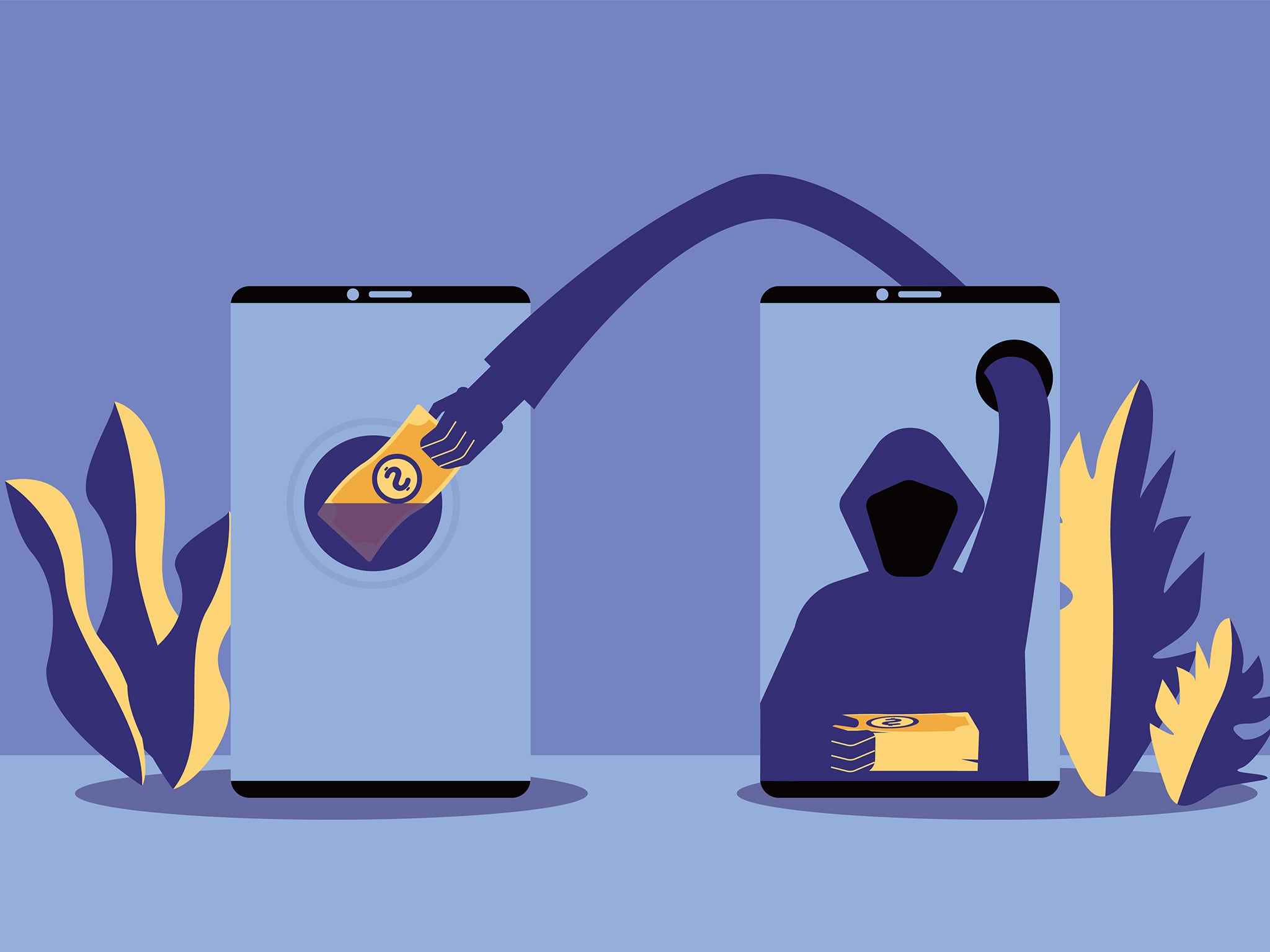One in four would transfer all their money to a scammer, study finds
Scams dupe the youngest, most tech savvy consumers as cases of fraud rocket

More than one in four consumers would transfer all of their money to a “safe account” if someone they believed to be from their bank, or a police officer, called them to tell them their bank account had been compromised and their cash was at risk of being stolen.
But the figures, just the latest in an avalanche of data on fraud, don’t just highlight the risk to the elderly, vulnerable or somehow non-techy among us.
The numbers suggest those most at risk of falling for these are the under-34s, almost half of whom would do as the caller said, and transfer their cash to what they think is a new, safe, account, according to research by KIS Finance.
That’s despite more than 80 per cent of this age group claiming to know what these scams are and how they work.
If they do transfer their money, separate figures from Santander show the average victim would lose £5,634 each.
In safe account scams, the fraudsters cold-call their victims and pose as either a bank representative or as a police officer, putting pressure on them to panic and do as they say by frightening them into thinking their money is at imminent risk of being stolen.
Posing as a police officer, they will usually tell the victim that their bank account has been accessed by scammers or, if pretending to be a bank representative, they may give the same reason or claim that an employee in the branch has been stealing money from customers.
Whatever the story, the only way to prevent the victim’s money being lost without trace is by transferring everything they have to a so-called safe account, they will claim.
They will say the account has been set up in their name and that they’ll have full access to it once they’ve transferred the money over. However, it is actually a bank account controlled by the scammers and once the money has been transferred it will be very difficult, if not impossible, to recover it.
Get a free fractional share worth up to £100.
Capital at risk.
Terms and conditions apply.
ADVERTISEMENT
Get a free fractional share worth up to £100.
Capital at risk.
Terms and conditions apply.
ADVERTISEMENT
"These scammers are smart – they know exactly how to manipulate the conversation and gain their victims’ trust,” warns Holly Andrews, managing director at KIS Finance.
"For example, they will usually ask ‘security questions’ at the beginning of the call in order to gain information such as security codes, log-in details, and bank balances. If the customer later becomes suspicious then they use this information to prove their legitimacy, relying on the customer forgetting that they gave them this information in the first place.
"They will also spoof the phone number so even if someone was to check, their bank’s genuine fraud number and the number that’s calling them will match.
"The number of people who have said that they would willingly make the transfer if they received one of these calls is extremely worrying, especially in the younger age groups where the percentages are significantly higher.”
Citizens Advice reported this week that 36 million adults have been targeted by scammers using a range of techniques since January this year – more than double the figure over the same period in 2020.
More than half were informed about fake deliveries or parcels, 41 per cent were by someone pretending to be from the government and 12 per cent were by someone offering a fake investment or get rich quick scheme.
But while the over 55s were most likely to be targeted, the under 34s are almost five times more likely to fall victim to them than their older counterparts.
The charity cites the case of one young woman who got in touch when she lost £2,000 to a fake cryptocurrency company after receiving a message from a friend’s hacked social media account, for example.
Some experts believe younger consumers are more likely to fall victim to criminals partly because the means of responding has never been faster, particularly among the hyper-connected.
One in five consumers now respond to digital messages including texts, social media adverts, and emails within two minutes, financial insight firm TransUnion warns, with Generation Z – the youngest adults – responding fastest.
“Absolutely anyone can be the victim of a scam. Criminals don’t care who they’re scamming, as long as they get what they want,” says Paul Scully, Consumer Minister, responding to the Citizens Advice study.
“You might think you’re really tech-savvy, but we’re now seeing scams so convincing they’d give a computer programmer pause for thought.
“The best way to protect ourselves from scams is to dispel the myth that only a certain type of person is at risk, share experiences, and report suspected scams to Citizens Advice and Action Fraud.”
Further information, including how to spot the signs of a financial scam are available from Action Fraud
Join our commenting forum
Join thought-provoking conversations, follow other Independent readers and see their replies
Comments

Bookmark popover
Removed from bookmarks